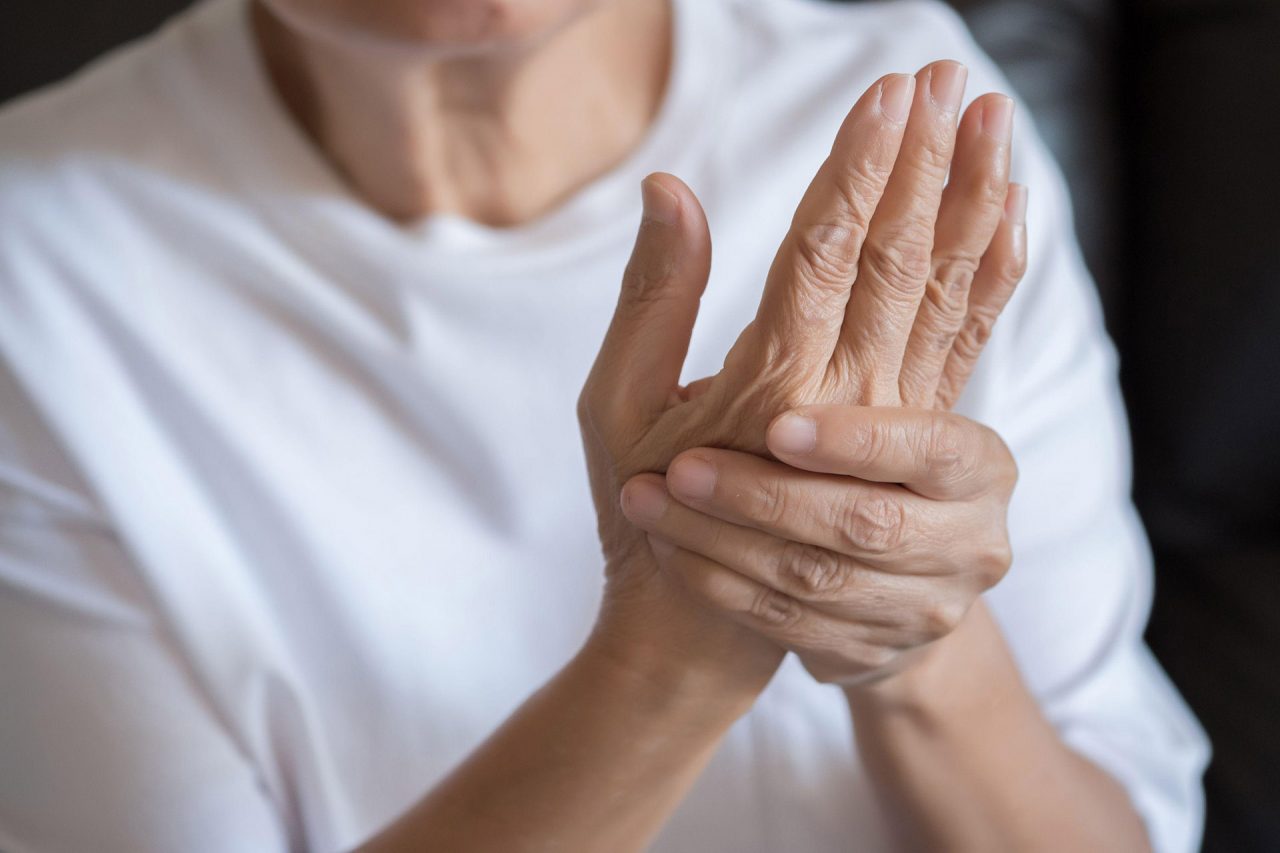Expect Ups And Downs With Arthritis
Pain is an unwelcome intruder on normal daily activities. Every person diagnosed with arthritis hopes that treatment will quickly gain control over the disease. And not only do people with arthritis hope to gain control of their condition but they hope to maintain that control. The truth is that the usual course of arthritis is fraught with ups and downs. Like many chronic health conditions, it can feel like a roller coaster.
Even with treatment, you should expect both good days and bad days with arthritis. Some people find that the ups and downs, a major part of dealing with arthritis, are the most difficult aspect. If possible, prepare for those ups and downs by building flexibility into your life.
Some people find it helpful to list out ways to adapt to unforeseen circumstances ahead of time, and there are even retreats focused on “resilience training” to help those coping with chronic medical conditions.
Role Of The Primary Care Doctor
Your primary care doctor will able to make an initial assessment following a physical examination. They can order X-rays, blood tests, or any other diagnostic tests needed to support his initial assessment. Your primary care doctor can also prescribe medications to relieve pain and other arthritis symptoms.
After test results come back and enough time has passed to evaluate how you are doing on the prescribed medications, your healthcare provider may decide that they can handle your case. If not, they may decide to refer you to a specialist in arthritis diseases known as a rheumatologist.
What Are Medical Treatments For Arthritis
- Not every person with arthritis requires medical attention. For example, some patients with osteoarthritis have minimal or no pain and may not need treatment.
- However, for those with persisting joint symptoms, the ideal steps to take should lead to a proper diagnosis and an optimal long-term treatment plan.
- This plan must be customized for each person affected, depending on the joints involved and the severity of symptoms.
Don’t Miss: Rash And Rheumatoid Arthritis
Questions For Your Doctor
- How do I know if my joint pain is caused by rheumatoid arthritis?
- Does RA run in families?
- What medicines would work best for me, and what are the side effects?
- Is there anything I can do to prevent flare-ups of RA?
- What are the pros and cons of surgery to treat RA?
- Does RA affect my life expectancy?
What Medications Treat Arthritis

For many patients with arthritis, mild pain relievers such as aspirin and acetaminophen may be sufficient treatment. Studies have shown that acetaminophen given in adequate doses can often be equally as effective as prescription anti-inflammatory medications in relieving pain in osteoarthritis. Since acetaminophen has fewer gastrointestinal side effects than NSAIDS, especially among elderly patients, acetaminophen is often the preferred initial drug given to patients with osteoarthritis. Pain-relieving creams applied to the skin over the joints can provide relief of minor arthritis pain. Examples include capsaicin, salicin, methyl salicylate, and menthol.
Cortisone is used in many forms to treat arthritis. It can be taken by mouth , given intravenously, and injected directly into the inflamed joints to rapidly decrease inflammation and pain while restoring function. Since repetitive cortisone injections can be harmful to the tissue and bones, they are reserved for patients with more pronounced symptoms.
For persisting pain of severe osteoarthritis of the knee that does not respond to weight reduction, exercise, or medications, a series of injections of hyaluronic acid into the joint can sometimes be helpful, especially if surgery is not being considered. These products seem to work by temporarily restoring the thickness of the joint fluid, allowing better joint lubrication and impact capability, and perhaps by directly affecting pain receptors.
Also Check: Can Stress Cause Rheumatoid Arthritis
Stop Ignoring Your Physical Limitations
Just as there are people with arthritis who aren’t active at all, there are those who push beyond their limits. The trick is to pace your activities. Overdoing it is just as harmful as underdoing it.
Pushing your limits can increase pain and put you at higher risk of joint damage. Respect pain and choose activities with your physical limitations in mind.
Can I Prevent Rheumatoid Arthritis
You cannot prevent rheumatoid arthritis because the cause of the disease is not known.
Quitting smoking, or never smoking, will reduce your risk of developing rheumatoid arthritis. You are more likely to develop rheumatoid arthritis if someone in your close family has it, but unfortunately there is no way to reduce this risk.
People who have rheumatoid arthritis often experience flare ups, which are times when their joints are particularly sore. Learning what triggers your flare ups can help reduce or prevent them.
For some people, stress can trigger a flare up, so can being run down or pushing yourself beyond your limits. Having an infection, missing a dose of your medicine or changing your treatment plan can also cause a flare up.
Keeping a food and activity diary may help work out your personal triggers but keep in mind that sometimes flare ups happen without any obvious cause.
Don’t Miss: Arthritis Drugs Side Effects
What Can An Orthopedic Doctor Do For Arthritis
The most common kind of arthritis is osteoarthritis, which occurs when the cartilage between the joints starts to break down this causes pain, stiffness, swelling, limited range of motion, and clicking or cracking when the joint is engaged. Without treatment, these symptoms can worsen over time. Depending on the type of arthritis you have, you may be referred to an orthopedist. Here are some of the things an orthopedic doctor can treat the arthritic symptoms that impact your musculoskeletal system.
Treatment For Hand Arthritis
Treating hand arthritis usually starts with conservative methods of taking anti-inflammatory medications, ice and heat therapy, splinting, and manipulation therapies. If pain persists, doctors may recommend steroid injections for immediate pain relief. However, this treatment method only offers temporary relief. When arthritis pain in the hand progresses and conservative treatments fail to bring relief, there may be damage to the hands joints, in which case, surgery may be necessary.
Recommended Reading: Inflammatory Arthropathy Symptoms
How Is Arthritis Diagnosed
Seeing your primary care physician is a good first step if youre unsure who to see for an arthritis diagnosis. They will perform a physical exam to check for fluid around the joints, warm or red joints, and document the range of motion in the joints. Your doctor can refer you to a specialist if needed.
If youre experiencing severe symptoms, you may choose to schedule an appointment with a rheumatologist first. This may lead to a faster diagnosis and treatment.
Documenting inflammation levels in your blood and aspirating and analyzing joint fluids, if present, can help your doctor determine what kind of arthritis you have.
Blood tests that check for specific types of antibodies like anti-cyclic citrullinated peptide , rheumatoid factor and antinuclear antibody are also common diagnostic tests.
Doctors commonly use imaging scans such as X-ray, MRI, and CT scans to produce an image of your bones and cartilage. This helps them rule out other causes of your symptoms, such as bone spurs.
The main goal of treatment is to reduce the amount of pain youre experiencing and prevent additional damage to the joints. Youll learn what works best for you in terms of managing pain.
In general, treatment for arthritis
- heat and cold compresses
- mobility assistance devices, such as canes or walkers
Improving your joint function is also important. Your doctor may prescribe a combination of treatment methods to achieve the best results.
Do I Need To See A Doctor About Arthritis Good Question Wed Say That If Joint Pain Is Regularly Affecting Your Quality Of Life Its Time To Be Proactive About Getting The Treatment You Need
Youre fairly certain the joint pain youre experiencing is the result of Osteoarthritis. Now what? Are their effective ways to treat joint degeneration? Do you need to go see a doctor, and if so, how soon should you schedule an appointment?
First, its important to assess your symptoms. Understanding the types of symptoms youre experiencing and gauging their severity will help you determine whether or not its time to see a doctor.
Are you experiencing one or more of the following symptoms?
-
Pain and tenderness in the joint area
-
Stiffness and limited range of motion
-
Swelling of the joint
Ask yourself the following additional questions:
-
Does my pain increase with movement?
-
Is the stiffness most noticeable just after rest?
-
Have my symptoms become gradually worse over time?
-
Is joint pain affecting my quality of life?
If you have one or more of the symptoms listed and you answered yes to one or more of the questions above, then its time to act. You asked, Do I need to see a doctor about arthritis? and our answer is: YES!
Also Check: Ra Pain Relief
What Is A Joint And How Does It Work
A joint is where two or more bones meet, such as in the fingers, knees, and shoulders. Joints hold bones in place and allow them to move freely within limits.
Most of the joints in our body are surrounded by a strong capsule. The capsule is filled with a thick fluid that helps to lubricate the joint. These capsules hold our bones in place. They do this with the help of ligaments. These are a bit like very strong elastic bands.
The ends of the bones within a joint are lined with cartilage. This is a smooth but tough layer of tissue that allows bones to glide over one another as you move.
If we want to move a bone, our brain gives a signal to the muscle, which then pulls a tendon, and this is attached to the bone. Muscles therefore have an important role in supporting a joint.
The Bread Basket May Be Doing You More Harm Than You Think

In my experience treating patients with RA, coming off gluten, dairy, and processed sugar helps at least 60 to 70 percent of people, Dr. Levitan says. Some research, he says, indicates that gluten may be pro-inflammatory whether you are sensitive to it or not. This means that in addition to ditching junk food like cookies and cupcakes, cutting back on foods like bread and pasta, even if theyre whole grain, may help.
Its a good idea to talk to your doctor before making any dramatic changes in your diet. They may be able to give you pointers on how to follow an elimination diet temporarily to see if there are any trigger foods that affect you personally.
You May Like: Is Vicks Vaporub Good For Knee Pain
What Increases Your Risk For Arthritis
Sometimes arthritis can occur with no known cause. But there are also factors that can increase your risk for all types of arthritis.
Age: Advanced age increases a persons risk for arthritis types such as gout, rheumatoid arthritis, and osteoarthritis.
Family history: You are more likely to have arthritis if your parent or sibling has an arthritis type.
Gender: Women are more likely to have RA than men while men are more likely to have gout.
Obesity: Excess weight can increase a persons risk for OA because it puts more pressure on the joints.
History of previous injuries: Those who have injured a joint from playing sports, from a car accident, or other occurrences are more likely to experience arthritis later.
Even if you dont feel the symptoms, you should discuss your potential risks for arthritis with your doctor. They can help provide ways to prevent or delay arthritis.
Just as the location of arthritis varies, not all people will have the same type of arthritis.
What Does An Orthopedist Do
Orthopedists handle the disorders, injuries, prevention, treatment, and repair of the skeletal system and its related joints, ligaments, and muscles.
Orthopedists and orthopedic surgeons are specially trained in the diagnosis and treatment of bone and joint disease. They use an array of testing modalities to aid in diagnosis and treatment.
Recommended Reading: Arthritis In Knuckles Relief
Prepare For The Journey Of Arthritis
Many people who are newly-diagnosed want the quick fix or cure for arthritis. For most people with arthritis, however, there is no cure. There have been significant advances in treatment options over the years, but finding the right course of treatment can be a journey. It is not uncommon to start one course of treatment and have to change several times before you find what works best.
Also, it is important to realize that what brings relief to one person may be totally ineffective for you. There are many things to try, including exercise, so try to be patient as you go through the process of finding what works for you. Even after you have been treated for a period of time, it’s very important that you talk to your healthcare provider about new or persistent symptoms. It may be time to change your treatment if your response is no longer satisfactory.
Home Remedies For Arthritis
In addition to treatments recommended by your doctor, you can use dry heat from a heating pad or moist heat in the form of a hot bath or a hot-water bottle wrapped in a towel to help relieve pain and stiffness. Heat and rest are very effective in the short run for most people with the disease. Regular exercise is also important to keep the joints mobile.
If you are overweight, losing weight is key, especially when arthritis affects the lower back, knees, and legs. Extra pounds add to the load and pressure on your joints, which can cause your arthritis to get worse faster. Being overweight also raises your chances of related health problems. Consult a registered dietitian who can help you plan a healthy weight loss program.
People with weakened, badly deformed fingers from rheumatoid arthritis benefit from specially designed utensils and door and drawer handles people with weakness in the legs and arms can use special bathroom fixtures, especially tub rails and elevated toilet seats.
Although arthritis may not be preventable, disability is — with a well-designed treatment program, including medications, exercise, and physical therapy when needed.
Here are some more things you can do to help keep the condition in check:
Educate yourself. Take a self-management course to learn specifics on day-to-day arthritis care.
Get active. Exercise can help you move better, lessen pain, and put off disability.
Also Check: How To Stop Arthritis Pain In Hands
Disk Degeneration And Bone Spurs
As the disks in the spine age, they lose height and begin to bulge. They also lose water content, begin to dry out and weaken. This problem causes settling, or collapse, of the disk spaces and loss of disk space height. Eventually, the cushioning qualities of the disks begins to decrease.
As the facet joints experience increased pressure, they also begin to degenerate and develop arthritis, similar to what may occur in the hip or knee joint. The smooth, slippery articular cartilage that covers and protects the joints wears away.
If the cartilage wears away completely, it can result in bone rubbing on bone. To make up for the lost cartilage, your body may respond by growing new bone in your facet joints to help support the vertebrae. Over time, this bone overgrowth called bone spurs may narrow the space for the nerves and spinal cord to pass through . Bone spurs may also lead to decreased range of motion in the spine.
Side view of a healthy cervical vertebra and disk. A disk that has degenerated and collapsed.
Who Can Help With My Joint Pain Or Arthritis
Your PCP will guide you in the right direction regarding which specialist you need to see in further treating your health concerns. Many health insurance plans require that a PCP first refer the patient to a consulting specialist before a visit to this specialist is covered by your medical plan.
If you suffer pain and disability due to arthritis, body trauma, injury, or an accident , an orthopedist can help. The staff at Orthopaedic Associates utilizes both cutting-edge therapies and traditional treatments to address a variety of orthopedic conditions.
For more information or to schedule a consultation, call 892-1440 or fill out our easy-to-use online appointment request form. We look forward to hearing from you.
You May Like: Medical Term For Joint Pain
Does Arthritis Ever Go Away
Ask U.S. doctors your own question and get educational, text answers â it’s anonymous and free!
Ask U.S. doctors your own question and get educational, text answers â it’s anonymous and free!
HealthTap doctors are based in the U.S., board certified, and available by text or video.
What Are Arthritis Risk Factors

Risk factors for arthritis include the following:
You May Like: Rheumatoid Arthritis Medicine Side Effects